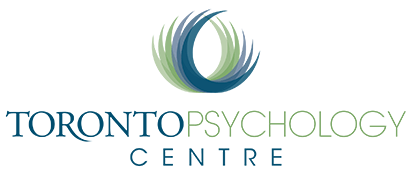
Trauma & PTSD
Ask Not: What’s Wrong With Me? Let’s Start With: What Happened To You.
From Understanding Comes Healing.
Trauma can overwhelm us emotionally, mentally, and physically. Survivors often find themselves alternating between states of numbness and overwhelming emotions like fear, anger, or shame.
Traumatic events fracture our core beliefs about ourselves, others, and the world. In the aftermath, we may feel powerless, struggle to trust others, and view the world as unsafe. Trauma can also leave the body in a persistent state of hyperarousal, resulting in chronic irritability, anger, headaches, and hypertension.
Not all trauma stems from a single catastrophic event. Adverse Childhood Experiences (ACEs)—including domestic violence, emotional or physical abuse, neglect, parental substance use, and household dysfunction—can profoundly affect a child’s emotional and psychological development.
Beyond overt traumas, subtle forms like childhood emotional neglect—when emotional needs are ignored or invalidated—can leave lasting scars. This neglect is often hard to recognize because it may occur in families that meet basic needs yet fail to provide emotional connection and validation. As a result, children grow up feeling unseen and unsupported, impacting their ability to express emotions, form meaningful relationships, or seek help later in life.
Over time, both obvious and subtle ACEs increase the risk of mental health challenges such as anxiety, depression, and post-traumatic stress disorder (PTSD). They also influence how we relate to others, disrupt attachment patterns, and erode our ability to trust. These experiences can make it difficult to build healthy connections, regulate emotions, and maintain boundaries, leading to struggles with intimacy and close relationships.
For those seeking a deeper understanding of the impact of emotional neglect, Adult Children of Emotionally Immature Parents by Lindsay C. Gibson provides valuable insights. The book offers practical strategies for reclaiming emotional well-being and creating healthier, more supportive relationships.
Our trauma-informed therapists are here to help. With compassion and expertise, we provide evidence-based therapy tailored to your unique needs. Whether you are addressing acute trauma or the lingering effects of emotional neglect, we are committed to guiding you toward healing, helping you reconnect with yourself, and restoring a sense of safety, trust, and meaning in your life. Reach out now to start your healing process.
Specific Types of Trauma:
PTSD encompasses a range of symptoms following exposure to death, injury, or sexual violence. These events could be experienced directly, witnessed, or indirectly. Symptoms include intrusive memories, avoidance, negative changes in thinking, mood swings, and hyperarousal. While these symptoms are common initially, they can persist and interfere with daily life without proper treatment.
There are several types of specialized cognitive behavioural treatment approaches for Posttraumatic Stress Disorder such as Prolonged Exposure and Cognitive Processing Therapy. Read more about treatment.
Complex trauma, often experienced in childhood, involves repeated interpersonal trauma, including physical, sexual, and emotional abuse, as well as neglect.
Exposure to such experiences of abuse and neglect can be particularly damaging because they are usually chronic, occur during developmentally vulnerable periods of life (i.e., during critical periods of brain development and personality formation), and involve harm and/or betrayal within relationships that are supposed to be trustworthy, nurturing, and protective. As a result, these experiences compromise normal self-development and basic trust in primary relationships.
Complex trauma can profoundly affect you and your ability to relate to others, resulting in problems in the areas of emotion, self-concept, relationships, and physical health. Mental health issues such as PTSD, anxiety disorders, depression, substance use issues, and low self-esteem are common. Healing from childhood trauma requires a compassionate and tailored approach.
Emotion Focused Therapy for Trauma (EFTT) is an effective treatment for complex trauma related to childhood abuse or neglect. Alongside cognitive and emotion-focused therapies, we offer specialized methods such as Schema Therapy, Somatic Experiencing, and Internal Family Systems. Our goal is to create a customized treatment plan that meets your unique needs, fostering a safe and supportive environment for you to heal and thrive. Read more about treatment.
Treatments for PTSD and Complex Trauma
Avoidance of trauma-related memories, feelings, thoughts, and situations is a natural response to painful experiences. However, avoidance can prevent processing and integration of the trauma and ultimately perpetuates symptoms and interferes with natural recovery. Chronic avoidance also leaves people stuck in the feelings and perceptions formed at the time of the trauma.
In order to heal from trauma, people need to remember, to tell the story over again in a safe and validating environment in order to work it through and begin the healing process. Talking through the trauma helps individuals get ‘unstuck’, gain more control of their thoughts and feelings about the trauma, make sense of it, and integrate it into their experience so that it does not continue to haunt them. This process of integration allows the trauma to become a part of normal memory rather than something to be perpetually feared and avoided, interfering with normal life.
Revisiting the traumatic event(s) is hard at first, but many feel better over time and notice reduced symptoms as well as feeling more empowered, more connected to themselves and others, and regaining a sense of meaning in life.
There are several effective treatments for PTSD and complex trauma. These therapies all teach skills to manage anxiety and other intense emotions. They also involve working directly with trauma memories and feelings to process them, and helping individuals make sense of the trauma. However, therapy for complex trauma is typically longer and the therapeutic relationship plays a more central and direct role in the treatment. Additionally, more time is spent addressing emotion regulation (e.g., awareness, tolerance, managing intensity of emotions, coping), relational problems (e.g., learning how to effectively communicate feelings and needs, setting healthy limits) and self-related problems (e.g., self-criticism, self-blame).
Prolonged Exposure is a type of cognitive behaviour therapy for PTSD that helps people approach trauma-related thoughts, feelings, and situations that they have been avoiding due to fear. Repeated retelling and visualizing of the traumatic event (called imaginal exposure) helps to process the trauma leading to reduced posttraumatic symptoms as well as reduced fear of trauma-related memories and emotions. Individuals are also helped to confront safe but avoided situations in the real world. Repeated exposure to these thoughts, feelings, and situations helps reduce the power they have to cause distress.
Cognitive Processing Therapy focuses on the meaning given to the traumatic event(s) and problematic beliefs about the trauma that interfere with recovery, called “stuck points”. In revisiting the trauma memory, individuals are helped to understand how their interpretations of the event contribute to persisting negative emotions such as fear, guilt, shame, and anger; skills are taught to challenge and change problematic beliefs. In particular, therapy attends to areas of safety, trust, power, control, esteem, and intimacy which may have been disrupted by the trauma. Cognitive Processing Therapy has shown effectiveness for PTSD and complex trauma.
Emotion Focused Therapy for Trauma (EFTT) is an effective treatment for complex trauma that was specifically developed for individuals who have experienced different types of childhood abuse (emotional, physical, sexual abuse, emotional neglect). In addition to addressing symptoms of distress and problems in functioning associated with this type of complex trauma, this approach focuses on resolving issues with past perpetrators of abuse and neglect, usually attachment figures (e.g., parent) and healing these specific emotional injuries. There is also a focus on modifying maladaptive trauma-related emotions such as fear and shame and an emphasis on helping individuals draw on inner strengths and access adaptive emotions as healthy resources.
Schema therapy is an integrative therapeutic approach that combines elements of Cognitive Behaviour Therapy (CBT), attachment theory, psychodynamic therapy, and gestalt therapy. It is particularly effective for treating childhood trauma by addressing deeply ingrained patterns or “schemas” that develop as a result of early adverse experiences.
Schema Therapy focuses on understanding how our past experiences have shaped our schemas (beliefs specific to ourselves and the world around us). During our childhood, our needs may not have been met (e.g., our need for support, nurturance, safety/protection, emotional connection) which contributed to the development of early maladaptive schemas, unhelpful behavioural patterns and coping mechanisms.
Schema therapy aims to help individuals recognize and change maladaptive schemas and coping styles, ultimately leading to healthier emotional regulation, improved relationships, and a better quality of life.
Somatic Experiencing (SE) is a therapeutic approach designed to address the physical and emotional impacts of trauma by focusing on the body’s natural ability to heal itself. This approach explores how deeply painful experiences manifest in the body, applying a mind-body healing process to facilitate trauma recovery.
Unlike traditional talk therapies, SE emphasizes the importance of the body’s sensations and responses. The goal of SE is to restore the body’s natural balance by gently guiding individuals to become aware of and release stored tension and stress. By doing so, it helps individuals move past trauma and achieve a greater sense of safety and well-being.
Through SE, clients learn to tune into their body’s sensations, which can provide valuable insights into their emotional states and unresolved trauma. This awareness allows for the release of traumatic energy and helps in developing healthier coping mechanisms. Ultimately, Somatic Experiencing aims to empower individuals to regain control over their lives and experience improved mental and physical health.
Internal Family Systems (IFS) is a therapeutic approach that views the mind as composed of multiple sub-personalities or “parts,” each with its own perspectives, memories, and roles. Internal Family Systems therapy helps individuals achieve inner harmony by fostering a compassionate and balanced relationship between their different parts and their core Self.
Facing past traumas takes immense courage, and we’re here to support you every step of the way. Our patient, caring, and warm approach ensures a safe space for your healing journey. Our highly trained and relatable therapists incorporate various therapeutic approaches to tailor the therapy to your unique needs. Reach out today to start your path to recovery.

